| For the second part of the quote, Arcand is obviously writing from memory. He says “cause” instead of “question,” he says “gouvernants” instead of “chefs d’État” and “maîtres” instead of “patrons”. He frequently uses “gouvernants” in his work, and I usually translate that as “rulers”. But the fact he recalls a good approximation of the original Encyclical is significant. It proves he knows at least parts of them, if not whole Encyclicals, by heart. Which would be no surprise for a priestly Catholic who had managed to convert a Protestant minister while interned in a concentration camp in WWII. (For the anecdote, see page 14, A Short Study of the Life of Adrien Arcand, free ebook.)
We now turn to the topic of the Encyclical from which Arcand is quoting, “Capital and Labor”.
In the English version of the Encyclical, subtitled “Rights and Duties of Capital and Labor,” we have the purpose of the Church: “to speak on the condition of the working classes” “to define the relative rights and mutual duties of the rich and of the poor, of capital and of labor” because (and I’m piecing this together from different parts of the opening paragraphs) “the spirit of revolutionary change, which has long been disturbing the nations of the world,” has “passed beyond the sphere of politics and made its influence felt in the cognate sphere of practical economics”. How does Arcand begin his Canadian Corporatism? He calls it “A formula for economic and social reorganization”. In Inevitability, he critiques “political liberalism” as the cause of “economic liberalism”. And, he says, “Economic liberalism causes social harm through its contempt for the human being…”. (Italics added.)
Then, says the Pope, “the responsibility of the apostolic office urges us to treat the question of set purpose and in detail, in order that no misapprehension may exist as to the principles which truth and justice dictate for its settlement.” The question being treated is what are the “rights and duties of capital and labor”. The Pope says: “Public institutions and the laws set aside the ancient religion.” (A possible reference to the French Revolution.) The Pope continues: “Hence, by degrees it has come to pass that working men have been surrendered, isolated and helpless, to the hardheartedness of employers and the greed of unchecked competition.” (Italics added.)
Says Arcand in Canadian Corporatism: “Under financial democracy a very large number of our workers after thirty or forty years of honest labour find themselves to-day less advanced than they were when they began their career, having been constantly exploited as employees and as consumers, left without defence at the mercy of middlemen or cunning swindlers; their lives have been ruined.” Arcand’s “left without defence” echoes the Pope stating “isolated and helpless”. And, Arcand says: “No longer will the great international monopolies fix the prices. It is the national corporation itself, under the supervision of the government which must prevent all and any abuse.” And again: “The producer can live, can devote himself to his specialty without fear of ruin. He can count on the stability of business and the consumer is protected against any exploitation.”
I’m not going to go into a full analysis here of the relevance of Rerum Novarum to Arcand’s views, and to his design of Corporatism for Canada. But note that in Canadian Corporatism Arcand refers to the “guilds”, and in the Encyclical (Rerum Novarum) the Pope says: “some opportune remedy must be found quickly for the misery and wretchedness pressing so unjustly on the majority of the working class: for the ancient workingmen’s guilds were abolished in the last century, and no other protective organization took their place.” (Italics added.)
This is the kind of sentence I would want to use as a point of departure in analyzing Adrien Arcand’s motives for advancing Canadian Corporatism, in which he says: “Corporatism also is totalitarian, exacting discipline, rules, structures, in everything and everywhere. It is not the State which fixes these rules and these structures, it is the guilds of National activities which give them to themselves, the State approves.” (See page 12 in the free eBook.) (Italics added.)
Is Arcand not re-establishing the abolished “guilds” within a new “protective organization” (the State) whose job is to protect, to prevent abuse? In his Canadian Corporatism, does he not include everyone, all the social classes, to achieve that “settlement,” the “remedy” the Pope said necessary for the new industrial society, to protect and render justice to every social class, most of whom would be liquidated in an orgy of bloodshed by the Communists, on the rise at the time of Leo XIII, and costing millions of lives in Arcand’s time. Israeli commentator, Sever Plocker, in his article “Stalin’s Jews,” remarks: “We cannot know with certainty the number of deaths Cheka was responsible for in its various manifestations, but the number is surely at least 20 million, including victims of the forced collectivization, the hunger, large purges, expulsions, banishments, executions, and mass death at Gulags.” And further on, “Whole population strata were eliminated: Independent farmers, ethnic minorities, members of the bourgeoisie, senior officers, intellectuals, artists, labor movement activists, ‘opposition members’ who were defined completely randomly, and countless members of the Communist party itself.” “And us, the Jews? An Israeli student finishes high school without ever hearing the name “Genrikh Yagoda,” the greatest Jewish murderer of the 20th Century, the GPU’s deputy commander and the founder and commander of the NKVD. Yagoda diligently implemented Stalin’s collectivization orders and is responsible for the deaths of at least 10 million people. His Jewish deputies established and managed the Gulag system. After Stalin no longer viewed him favorably, Yagoda was demoted and executed, and was replaced as chief hangman in 1936 by Yezhov, the “bloodthirsty dwarf.” “Yezhov was not Jewish but was blessed with an active Jewish wife. In his Book “Stalin: Court of the Red Star”, Jewish historian Sebag Montefiore writes that during the darkest period of terror, when the Communist killing machine worked in full force, Stalin was surrounded by beautiful, young Jewish women.”2
Oddly, Arcand’s critics are all opposed not to the communist butchers and the Jewish killing machine, but to Adrien Arcand, who feared that what happened there would happen here. To-day, as then, pink and red pick-aparts call Arcand “far right,” “anti-Semitic,” “intolerant,” and an anticommunist “bigot”. But where are the epithets for Stalin’s Jews? And all the others?
As to Arcand’s unitary corporate State, I leave it to you, the researcher, to deepen the questions. To do so, you will have to be or become familiar with Papal Encyclicals, Catholic doctrine, Thomas Aquinas, historical context. All these play into Arcand’s motives. I think it obvious that Arcand was a devout Catholic trying to restructure society in light of statements by the Popes, to save us from Communism. As will be seen in the footnotes to Inevitability, Arcand cites Aquinas to support his own reestablishment of a unitary parliament for Canada, free of political parties, free of partisan politics through undivided leadership.
The researcher will have to distinguish Arcand’s abolition of political parties from that of Hitler. And also ask why an RCMP report on Arcand’s National Social Christian Party stated that it was “undoubtedly organized along the lines of Hitlerism”. (See the first paragraph of the section “L’avant-guerre” in David Rajotte, “L’État canadien contre le Parti de l’unité nationale et Adrien Arcand”. Bulletin d’histoire politique, 26(3), 189–211. doi:10.7202/1046920ar.)
Arcand’s inspiration for his military-style organization might be Catholic, it might be from Hitler, who was widely admired prior to WWII. Whatever Arcand’s military-type of organization, it ought to be distinguished from the apparently Catholic-inspired reorganization of society and of the State proposed by Arcand in Canadian Corporatism. Self-labeling for “success” by copying a patriotic brand that was popular elsewhere at the time should be placed in perspective, in context on a timeline, beside Arcand’s obviously Church-inspired Corporatism. Arcand’s early borrowing of symbols (swastika) and titles (Führer) may have misled non-Catholics not steeped in Biblical roots, Encyclicals, or Thomas Aquinas into believing that everything about Arcand was merely a matter of duplicating the German package, or whatever simplistic views were thought to be the package.
This is tricky work, but intellectual integrity and dignity, for Arcand, for the men and women of his Legions, for his disciples and followers, and for the researcher, require that it be done. Said Arcand, in his Inevitability: “[L]ife is vibrant reality, influencing and influenced”. For the sake of History, the researcher must clarify Arcand’s own “vibrant reality” rather than impose upon him, after-the-fact, a backhanded and subjective one, whether individual or collective.
In addition to Encyclicals and Aquinas, I recommend the annotated, beautifully embellished, multi-volume Latin and French-language King James version of the Catholic Bible, the “Crampon” Bible, scans of which are online at French Catholic web sites. Arcand quotes from the Crampon from time to time.
____________________
1. I am using the Balder version and Arcand’s own draft from Special Collections at Concordia for this eBook because a price of $35 per page was quoted to me by email by the BAnQ to scan the 7-page published booklet, plus covers. That is several times what it cost me in June 2019 to get a couple of hundred pages out of Arcand’s papers at Concordia University. It just isn’t within my budget, so I am using whatever is reasonable that I can get my hands on.
2. “Stalin’s Jews / We mustn’t forget that some of greatest murderers of modern times were Jewish,” By Sever Plocker |Published: 12.21.06, 23:35
https://www.ynetnews.com/articles/0,7340,L-3342999,00.html
|


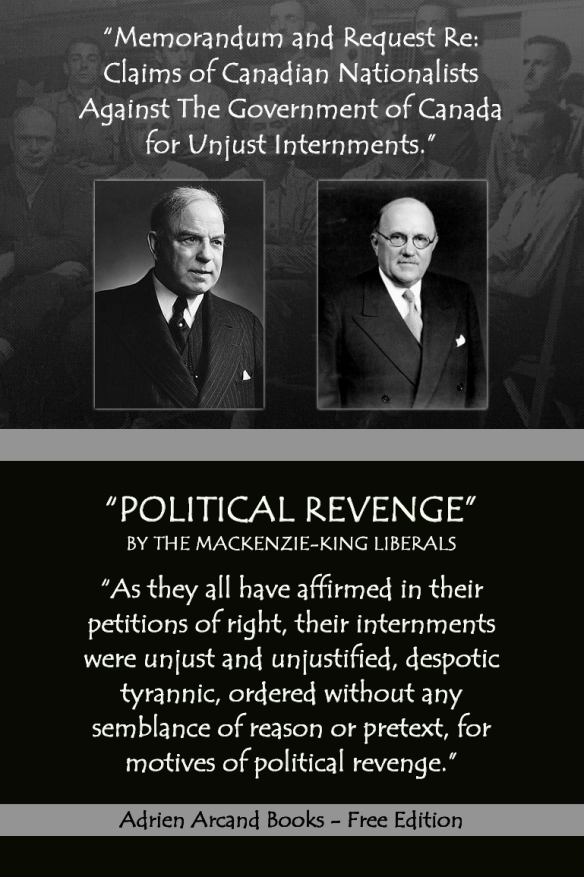




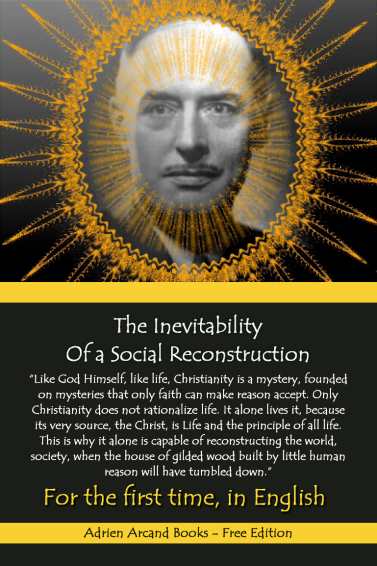





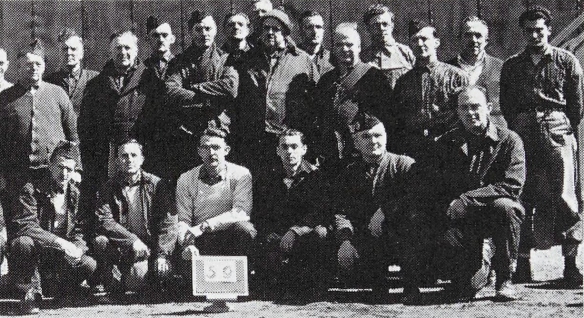






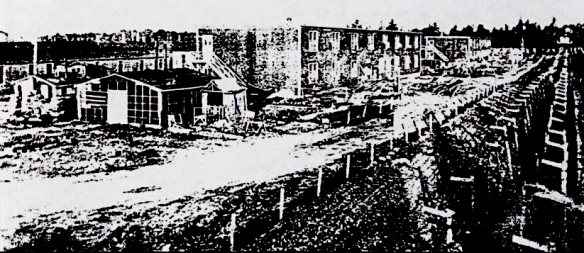

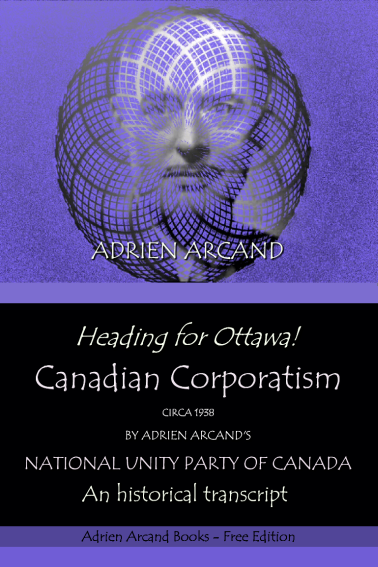




 WE SUFFER, complain, are harassed by anxiety and uncertainty in every region of the country, in all milieux.
WE SUFFER, complain, are harassed by anxiety and uncertainty in every region of the country, in all milieux.